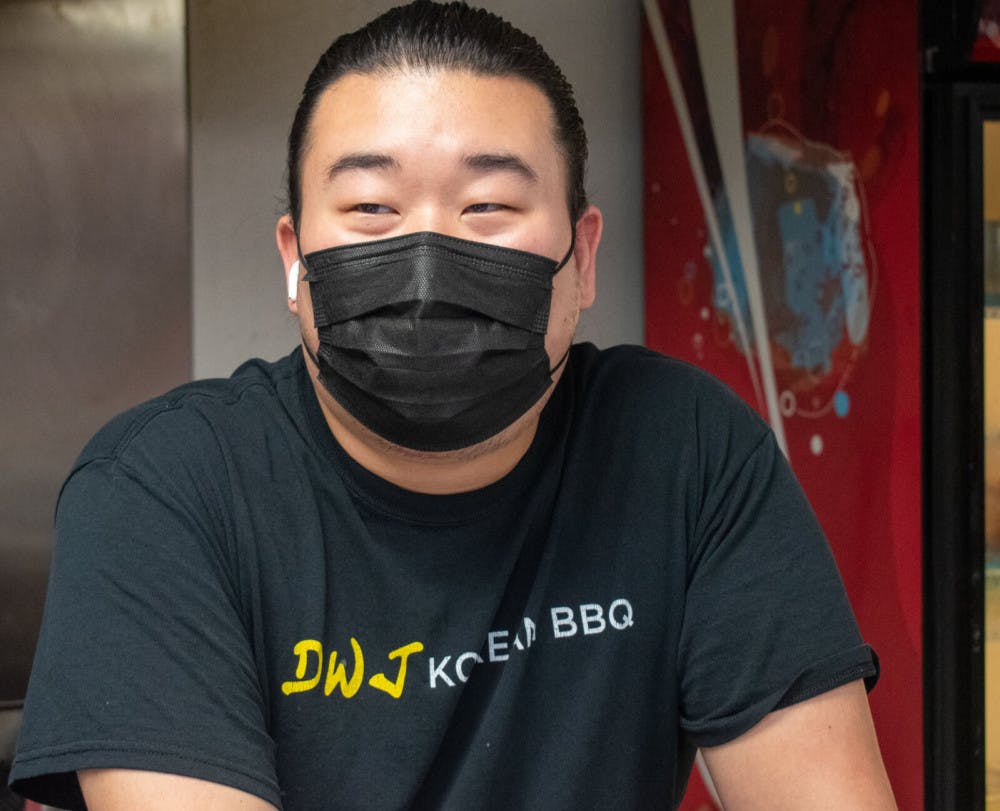When Bulgogi, a thinly sliced beef marinated in soy sauce, leaves June Lee’s kitchen at DWJ Korean BBQ on the Highland Strip in Memphis, it has a story to tell.
The traditional Korean dish, which means “fire meat,” has traveled hundreds of miles, rested for days, and kept a family secret.
“It has gone from a rich peoples’ food to a more commoners’ food within the last 50 years,” says Lee, owner and chef at the DJW Korean BBQ on the Highland Strip. It is one of the most common dishes in Korean BBQ.
“Barbecue describes anything that is grilled basically on a grill or fireplace,” Lee explained.
Korean barbecue, however, differs in flavor and preparation from Southern barbecue. The ingredients are unique and sourcing ingredients can be expensive.
“We get most of our ingredients from a wholesale supplier in Atlanta, Chicago, LA, and Dallas,” Lee says. Apart from LA, they usually drive to the suppliers once a month to buy among others meat, rice, and sesame oil.
This journey is all about the flavor. “American sesame oil tastes a lot different,” Lee said. “It’s too filtered – You don’t get the nuttiness, the deep flavors out of it.”
Lee’s next obstacle? The meat. For his Bulgogi, Lee needs a certain kind of ribeye that is not common in the Memphis area. He buys around 500 pounds a month to supply his three restaurants in Midtown, Hacks Cross and on the Highland Strip from Atlanta.
Back in Memphis, Lee cuts the meat into thin slices while semi-frozen – usually on his day off. After cutting, the meat is ready for a little rest in flavor.
The marinade is one of the major differences in Korean barbecue compared to American barbecue. “Americans use a bit more spices, like mustard for the marinade or ketchup for the barbecue sauce, whereas in Korean barbecue, we use a lot more soy sauce based, or sesame oil based.”
The marinate details of Lee’s family recipe are secret, but this much he will tell: The main ingredients are soy sauce, sesame oil and a fruit-based glucose. Chilis, too, play a role.
“We marinate the meat for at least two to three days,” he said. Americans marinate their barbecue for 24 hours at the most.”
At last, the Bulgogi needs to be cooked – either in a pan or on a grill. “There is a difference between the pan cooked and the grilled,” Lee said.” In the pan, more moisture is released. It tends to be juicier.”
Grilled Bulgogi, on the other hand, tastes more smokey.
Lee offers only the pan version at his restaurant and Memphians love it. The dish is the bestseller at the DJW Korean BBQ, Lee said.
For people who have not been to Korea yet, it’s a sweet and savory meat dish, something different to a conventional American steak, Lee said. And Korean costumers as well as veterans who have served in Korea often tell Lee it reminds them of the country.
June Lee is the owner and cook at the DWJ Korean BBQ on the Highland Strip. He graduated from the University of Memphis with a degree in hospitality.
June Lee prepares Bulgogi, a thinly sliced beef marinated in a soy sauce. He learned cooking from his mother who cooks at the Hacks Cross location.




